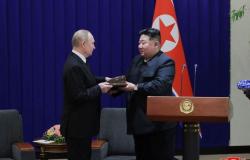AI and the ongoing digital revolution are profoundly transforming global agri-food systems. At the recent G7 Business 7 meeting in Rome, the Director-General of the Food and Agriculture Organization of the United Nations (FAO), Mr. Qu Dongyu, highlighted the urgency to ensure that these transformations benefit everyone and contribute to meeting global challenges.
Current conflicts, climate crises and economic shocks have triggered serious food emergencies, especially for populations who depend on agriculture in one form or another for their livelihood.
During his opening address to the 175th session of the FAO Council, which takes place from June 10 to 14, the Director-General warned that the risk of famine was real in Sudan, where half of the inhabitants face high levels of acute food insecurity, while emphasizing that “we now have a short window of opportunity to avoid it”.
Qu further said that in Gaza, famine had moved beyond a threat to become a dire reality amid an unprecedented humanitarian crisis, compounded by the collapse of agro-food systems and water supplies. blockades preventing the provision of aid.
The war in Ukraine has caused serious damage to the country’s agricultural sector, with repercussions on the national workforce, infrastructure and export capacity, but also on global food security.
In Haiti, more than four million people face high levels of acute food insecurity, and FAO is stepping up efforts to support the country’s agriculture so that the main harvest season is not compromised.
Mr. Qu urged the Organization’s members to maintain momentum around its core objectives, particularly the transformation of global agri-food systems, and to “ensure not to let history repeat itself through famine and destruction of livelihoods”.
A major economic and social transformation
For Mr. Qu, “AI is not only generating a turning point in the technological world, but is bringing about a major economic and social transformation in general”.
At Business 7, he highlighted the potential of AI to bring benefits to a wide range of populations and improve the efficiency and sustainability of agri-food systems, adding “Digital agriculture can revolutionize the way we produce, distribute and consume food.”
He thus highlighted its potential benefits for farmers and agri-food system actors, such as improving price data, minimizing food loss and waste, strengthening food safety, and encouragement to use better seeds, fertilizers and sustainable practices.
Importance of data
Mr. Qu emphasized the central role of data in the field of AI and digital technologies. He stressed that quality data is essential to drive innovative tools and accelerate the transformation of agri-food systems. FAO has an impressive database (FAOSTAT) and an innovation laboratory to test new sources and methods. However, these initiatives require significant investments and effective collaboration. FAO is ready to partner with Business 7 and the private sector to move forward in this area.
Energy and climate challenges
Another crucial area of collaboration is the energy sector. Mr. Qu estimated that decarbonization by 2050 is “simply impossible” without tackling the energy consumption of agri-food systems. He encouraged the private sector to increase their ambitions on climate action and to be more accountable to their supply chains and the local populations of the countries in which they source, buy and sell their products.






